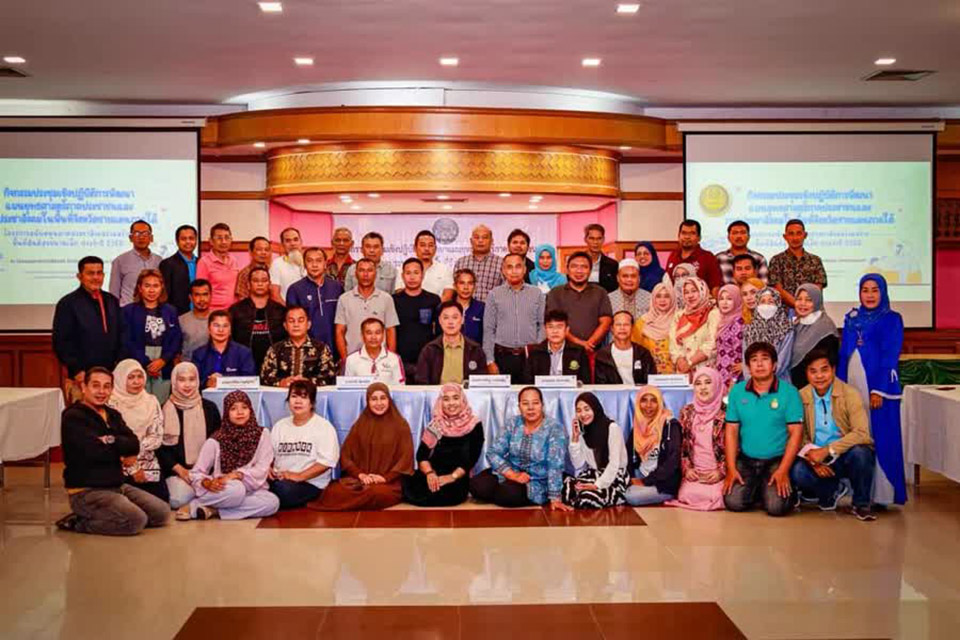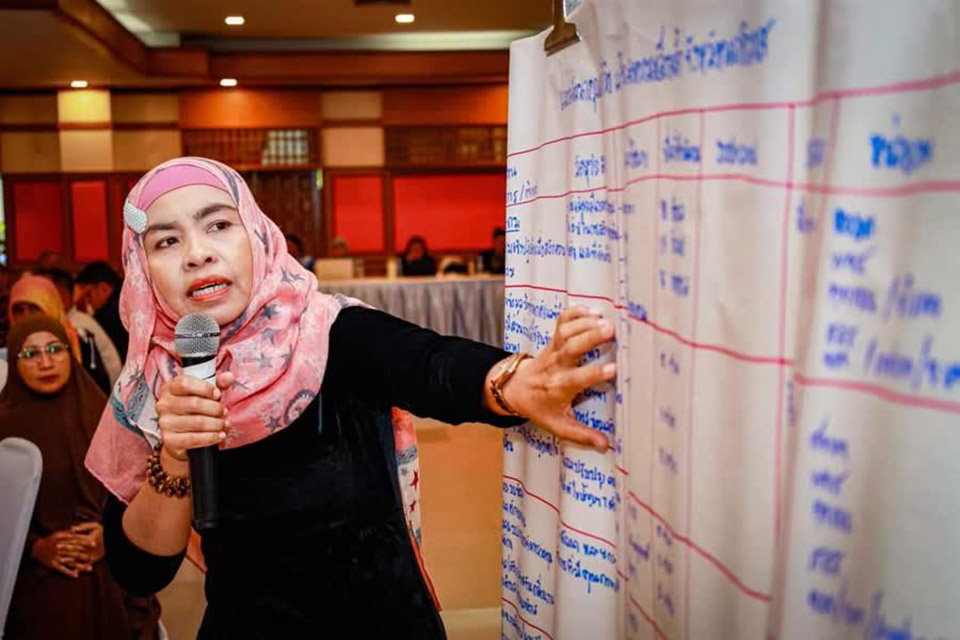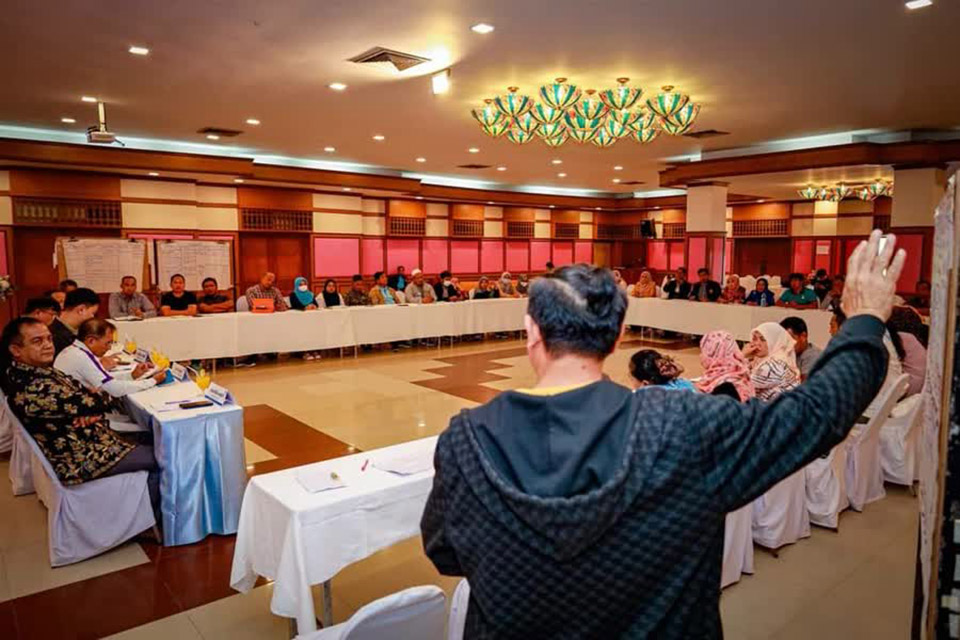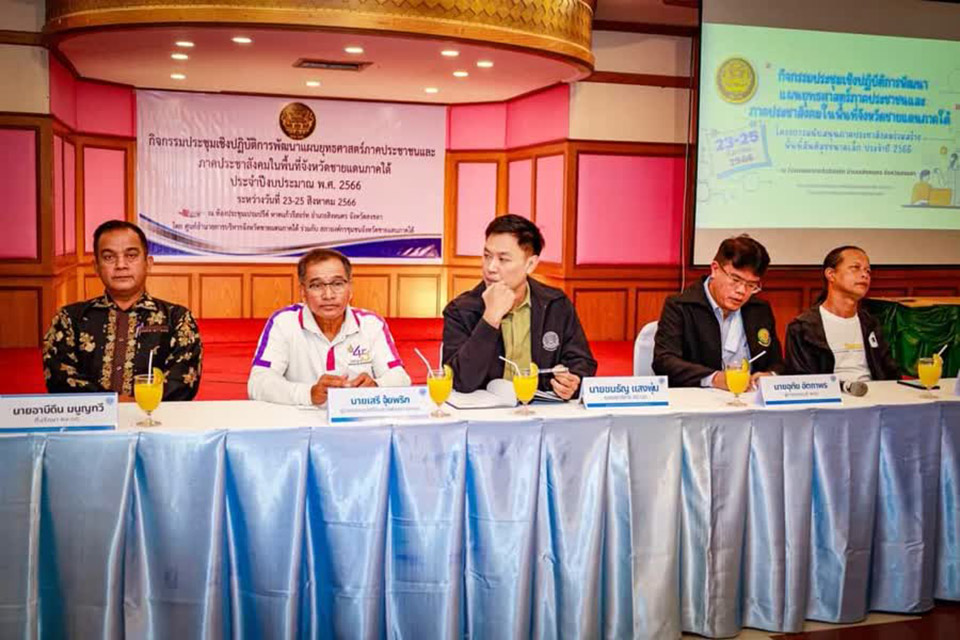
In a significant effort to enhance the quality of life in the southern border provinces of Thailand, the Civil Society Network hosted a workshop on August 25 at the Haad Kaew Resort in Songkhla Province. The meeting brought together representatives from various sectors, including community organizations, agricultural groups and social development networks. With over 50 participants, the discussion focused on brainstorming strategies to drive sustainable development initiatives that positively impact the lives of local residents.
The workshop was presided over by Chonthan Sangpoom, Deputy Secretary-General of the Southern Border Provinces Administrative Center (SBPAC), who discussed these challenges and offered his advice to representatives from different sectors. One pressing issue has been nutrition deficiency among children aged 0-7, which he said demands immediate attention. He highlighted the government’s unwavering support for policies aimed at raising the quality of life for citizens of all age groups. The ideas exchanged during the workshop will be further studied and amplified to effectively improve the quality of life for local communities.
The SBPAC deputy secretary-general also unveiled a comprehensive plan for food security development in the southern border provinces from 2024 to 2027. The strategy includes a number of initiatives to assist local farmers, stimulate agricultural enterprises, increase production capacity and promote commercial agriculture.

For its next phase, the SBPAC will implement strategies with a strong emphasis on empowering the community and society, beginning October 1. To achieve the most significant developmental effects, this approach requires active participation and engagement of individuals and communities. Under these plans, the SBPAC aims to integrate both community and civil society voices in decision-making processes, streamline administrative processes in project support, and work on removing regulatory barriers.
Furthermore, the SBPAC intends to incorporate lessons learned from all areas of the new policy framework in order to provide a holistic solution at every stage. The main goal is to develop locally produced products that truly meet community needs. The initiative begins with the launch of the first local Halal food products, with the ambitious goal of reaching more than 2 billion Muslims worldwide. This collaborative effort is intended to resolve disparities, ensure that the outputs are in line with the genuine requirements of the community and foster long-term cooperation, development and effective problem-solving in the region.
The representatives from the Southern Border provinces further shared the same sentiment with the SBPAC, stressing the importance of an approach to improve the lives of people while tackling poverty and reducing social disparities. This includes community-driven activities that tackle challenges and foster resilient communities. The collaborative efforts are expected to create a positive impact and promote sustainable improvements for people in the southern border provinces. (NNT)









